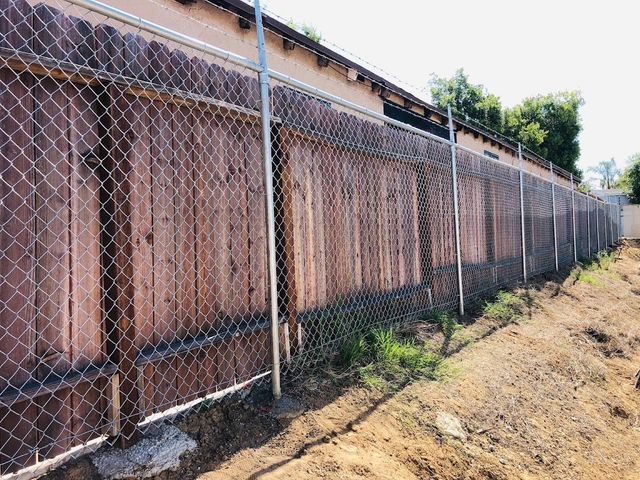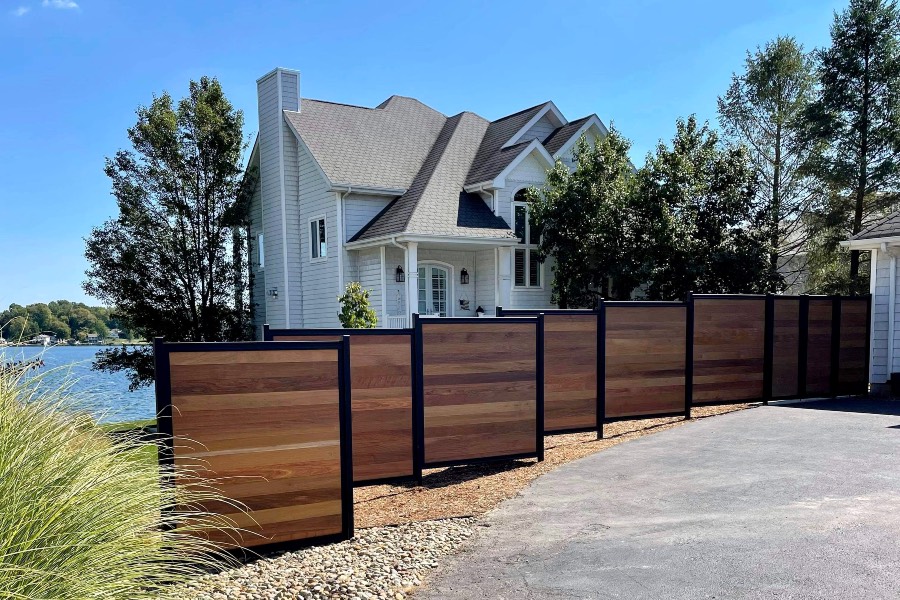All Categories
Featured

When setting up a fence, choosing the ideal product is essential to stabilizing capability, appearances, and budget. Wood, plastic, and aluminum are among the most frequently picked fence materials, each with its staminas and disadvantages. This guide checks out the benefits and drawbacks of these options to help you make a notified decision.

Timber Secure Fencing. Pros:. All-natural Elegance: Wood's classic beauty can improve any residential property with its classic and warm appearance. Customizable: You can repaint, stain, or carve timber to fit your design choices. Cost effective: Wood fencing is initially a lot more affordable compared to a few other products. Eco Friendly: As a sustainable source, timber is naturally degradable and typically thought about environment-friendly. Cons:. Maintenance-Intensive: Normal sealing, painting, or staining is called for to stop damages from weather condition and pests. Prone to Decay: Without correct care, wood can rot, warp, or crack with time. Much shorter Life-span: On standard, timber fencings last 10-15 years, depending on the kind of wood and maintenance. Timber is a terrific alternative for those who value aesthetics and want to buy regular maintenance to protect its look and toughness.
Vinyl Secure Fencing. Pros:. Low Upkeep: Plastic calls for minimal treatment-- just occasional cleaning with soap and water. Climate Resistant: It doesn't warp, rot, or catch insect damages, making it highly sturdy in numerous climates. Longevity: Plastic fences can last 20-30 years with little to no repair work. Design Selection: Available in a vast array of textures, shades, and styles, including wood-like appearances. Cons:. Higher First Expense: Plastic fencings are more pricey in advance contrasted to wood. Vulnerability to Cold: In incredibly winter, plastic can end up being prone and weak to splitting. Restricted Repair Options: Matching replacement panels can be challenging if damage occurs. Plastic fencing is suitable for homeowners searching for a resilient, low-maintenance service that offers contemporary convenience.

Light Weight Aluminum Fence. Pros:. Rust-Proof: Aluminum resists corrosion, making it an excellent option for humid or damp environments. Durable: Regardless of being light-weight, light weight aluminum is solid and can hold up against extreme weather. Low Upkeep: It requires marginal maintenance, normally only periodic cleansing. Long Lifespan: Aluminum fencings can last years without substantial degeneration. Stylish Design: Often utilized for ornamental objectives, aluminum secure fencing includes a smooth, sophisticated appearance to residential properties. Cons:. High Initial Financial investment: Aluminum fencings are among the costlier alternatives on the marketplace. Less Personal privacy: The open designs common with light weight aluminum fence do not provide much personal privacy. Susceptible to Damages: While long lasting, light weight aluminum can dent if hit with sufficient force. Aluminum is an excellent selection for home owners prioritizing looks and resilience without calling for much upkeep.
Making Your Choice. When determining in between wood, vinyl, or aluminum fence, consider your concerns:
Wood fits those who value an all-natural look and don't mind placing in upkeep initiative. Vinyl is the very best choice for those seeking a low-maintenance, weather-resistant remedy. Light weight aluminum provides sleek style and lasting sturdiness however might do not have personal privacy. By carefully analyzing these products' attributes, you can choose a fencing that enhances your residential or commercial property while fulfilling your visual and functional requirements.
Latest Posts
See Why Dothan Relies on Vision Center South for Advanced Vision Services
Published Apr 21, 25
2 min read
Make Your Dream Fencing a Fact with Easy Financing
Published Apr 21, 25
1 min read
Keep Your Carpeting Looking Its Finest with Easy, Specialist Treatment
Published Apr 20, 25
2 min read
More
Latest Posts
See Why Dothan Relies on Vision Center South for Advanced Vision Services
Published Apr 21, 25
2 min read
Make Your Dream Fencing a Fact with Easy Financing
Published Apr 21, 25
1 min read
Keep Your Carpeting Looking Its Finest with Easy, Specialist Treatment
Published Apr 20, 25
2 min read